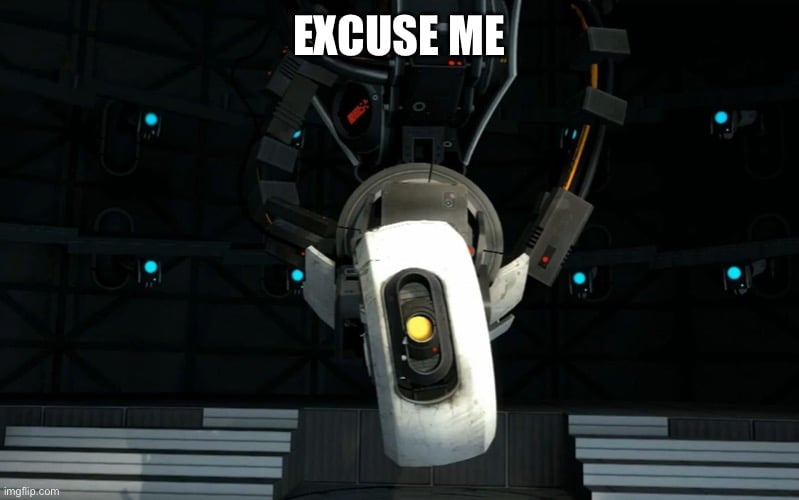The project is called “Lacros” which Google says stands for “Linux And ChRome OS.” This will split ChromeOS’s Linux OS from the Chrome browser, allowing Google to update each one independently.
Previously ChromeOS was using a homemade graphics stack called “Freon,” but now with Wayland, it’ll be on the new and normal desktop Linux graphic stack. Google’s 2016 move to Freon was at a time when it could have moved from X11 (the old, normal desktop Linux graphics stock) directly to Wayland, but it decided to take this custom detour instead. Google says this represents “more Wayland support” because Wayland was previously used for Android and Linux apps, but now it’ll be used for the native Chrome OS graphics, too.
all chromeOS needs to be immensely more useful is flatpak support, if chrome OS supported flatpaks directly, it could very well be my goto (well not chromeOS directly, probably thoriumOS) for older linux PCs for general populace
Not sure they will do that. Really hard to guess what the future is for ChromeOS. I don’t know that developing it into a good general purpose OS is their aim.
ChromeOS seems like a very strategic product niche for Google. Their big business is advertising and the Chrome browser and Android seem like an insurance policy to protect that business.
ChromeBooks focussed on the education market almost to the exclusion of all else and their main selling point there was cost. Now with a lot of low quality, low margin hardware dead or running out of software updates they risk being viewed as the single use plastics of the computing industry. I am sure that influenced the pairing with Framework but it might be too little too late. It still doesn’t address the software update situation. The Android model of manufacturers dropping support the moment they have our cash isn’t sustainable. I wouldn’t be surprised if eventually consumer legislation catches up with it in some markets.
It is hard to see how the ChromeOS experiment benefited Google’s core business. I am sure they made millions on education cloud services but it is pocket money compared to Google’s main source of revenue. Without knowing exactly what their thinking was going into that market or what they achieved I don’t know how much priority they are likely to give to turning ChromeOS into a compelling platform for the general population.
Chromebooks found their way into enterprise niches and were gifted as zero support browsing appliances for grandparents but the push into those markets never felt focussed or important to Google. I doubt Google execs think about ChromeOS the way we are thinking about it.
it’s worth noting that chromebooks are seeing a good chunk of consumer adoption as it is already as a lot of people who are leaving schools are sticking with them now.
chromebooks are actually fairly sustainable, a large amount of them more or less run fine on mainline linux, and flashing linux to the newer models typically is not that hard. also we have already reached a point in computing where even cheap computers have a really strong staying power. I currently have a Lenovo N22 (winbook but exact same as the chromebook specs wise) running arch + kde, and daily use, it’s perfectly fine, it can do youtube, email facebook etc.
it’s not the fastest PC but it manages to chug along and work fine, it was one of, if not the cheapest laptop you could actually get in 2016/2017 era, and it’s still usable, as long as the hardware itself doesn’t physically die, even arm chromebooks to this date remain usable machines, and when you can flash mainline linux kernels on them then I can really see 3rd party forks like thoriumOS being a strong choice.
as it stands from an ex-computer salesman perspective (and someone who actually supports the products they sell being a key point), chrome(ium)OS is so close to being a really good choice for a linux distro. the only other one im actually waiting for is popOS, waiting to see how cosmic-epoch turns out
What’s the battery life like?
now? it’s roughly 4-7 hours depending on usage, it used to be a lot longer, but it has undergone some heavy use, and never has had the battery replaced
ChromeOS already supports Flatpaks.
only via crostini which is a crosvm instance (kinda like qemu)
Right, and that’s very easy to set up with the GUI ChromeOS provides.
it may be relatively easy for folk like us, but for the general user I would not consider it so, you also have performance implications as it’s running in a VM. even with venus the overhead will always be there, and you wont be able to rid of it until stuff like virtio-native-context is widespread and common. but even then thats just the gpu side, you still have to worry about i/o and memory stuff.
not a good solution
Curious how/if this impacts the broader desktop Linux experiences. Google’s weight could help Wayland support grow faster, to the benefit of all of us. OTOH Google could monopolize the spec and/or implement a never-ending list of extensions, as they do with the web, to our detriment.
Microsoft also implemented the Wayland specification and it did zilch for adoption or growth of wayland. Let me put it another way, Chromebooks also adopted upstart and that has not had an impact on upstart use or adoption in the broader linux ecosystem.
Its more likely they’re gonna use work done for desktop linux with minimal if any contribution backwards to things we care about.
I doubt it would change anything since for native linux apps you need to use them in the linux VM (which albiet very high perf, is still a VM) and that already uses wayland, so unless they adopt native app support via something like flatpak, I doubt it will change much
It should be calle “Glacros” then, for “GNU\Linux And ChRome OS.”

A quotation circulates on the Internet, attributed to me, but it wasn’t written by me.
Here’s the text that is circulating. Most of it was copied from statements I have made, but the part italicized here is not from me. It makes points that are mistaken or confused.
I’d just like to interject for a moment. What you’re referring to as Linux, is in fact, GNU/Linux, or as I’ve recently taken to calling it, GNU plus Linux. Linux is not an operating system unto itself, but rather another free component of a fully functioning GNU system made useful by the GNU corelibs, shell utilities and vital system components comprising a full OS as defined by POSIX. Many computer users run a modified version of the GNU system every day, without realizing it. Through a peculiar turn of events, the version of GNU which is widely used today is often called “Linux,” and many of its users are not aware that it is basically the GNU system, developed by the GNU Project. There really is a Linux, and these people are using it, but it is just a part of the system they use.
Linux is the kernel: the program in the system that allocates the machine’s resources to the other programs that you run. The kernel is an essential part of an operating system, but useless by itself; it can only function in the context of a complete operating system. Linux is normally used in combination with the GNU operating system: the whole system is basically GNU with Linux added, or GNU/Linux. All the so-called “Linux” distributions are really distributions of GNU/Linux.
The main error is that Linux is not strictly speaking part of the GNU system—whose kernel is GNU Hurd. The version with Linux, we call “GNU/Linux.” It is OK to call it “GNU” when you want to be really short, but it is better to call it “GNU/Linux” so as to give Torvalds some credit.
We don’t use the term “corelibs,” and I am not sure what that would mean, but GNU is much more than the specific packages we developed for it. I set out in 1983 to develop an operating system, calling it GNU, and that job required developing whichever important packages we could not find elsewhere.
He actually added to the pasta…
He overjerker the jerk
Alphabet Science. We do what we must because we can.
I’m surprised Google has not retired Chrome OS yet. Feels like they’ve kind of lost their focus, so it’s about time to put it on the chopping block for retirement announcement
For them it’s pretty successful. Which they do cancel sometimes, but they shouldn’t.
Google only retires their very best products.
Speaking of which whatever happened to FuchsiaOS? Did they kill it? It would be a shame if they did. I was interested in it because it was an open source OS that wasn’t Linux or bsd based.
Never heard of it, “micro-kernel like” is a interesting phrase.
https://fuchsia.dev/fuchsia-src/get-started/learn/intro/zircon
seems to be still actively developed: https://fuchsia.googlesource.com/fuchsia/+log
It’s not cancelled but was impacted by layoffs recently.
It’s a Unix-compatible (i think?) kernel with a Flutter frontend for IoT and embedded devices. If you’ve ever used a Google Nest device it’s probably running Fuschia.
ChromeOS is insanely successful though? In Europe it’s one of the most popular systems for student laptops and cheap hardware. It’s sold as a standalone option (x86 and ARM) in technology stores all over the UK.
Of course Windows still reigns supreme but even a fraction of that is a commercial success to a competitor like Google. Much like how Bing is a “failure” but handles a third of search engine traffic in some places; Which is colossal considering it was technically inferior to Google until the AI features brought it some rep recently.
Not that I like ChromeOS but it’s a lot more successful and commercially viable than a lot of the projects that they’ve shelved in the last few years.
This is the best summary I could come up with:
Google documentation on the project says, "On Chrome OS, the system UI (ash window manager, login screen, etc.)
Lacros separates this functionality into two binaries, henceforth known as ash-chrome (system UI) and lacros-chrome (web browser)."
Part of the project involves sprucing up the ChromeOS OS, and Google’s docs say, “Lacros can be imagined as ‘Linux chrome with more Wayland support.’”
Users probably won’t notice anything, but the feature should make it easier to update Chrome OS and might even extend the lifetime of old ChromeOS devices.
Currently, there can be a delay while Google does the extra build work for ChromeOS, so the standalone browsers get security fixes first.
I’m a bot and I’m open source!
Thank Lemmy for useful bots.
Good bot!
I am a perpetual tinkerer and I like my diy systems and maintaining arch so I know that ChromeOS isn’t for me for everyday use but it is a very compelling environment for some things.
ChromeOS does a damn good job of providing a very locked down environment for enterprise or non technical users. It is a far more straightforward appliance like model of computing than any legacy desktop environment. If it was using Wayland and offered the option of flatpak and steam out of the box as well as android app compatibility it would do a lot to counter some of the criticisms about their flexibility.
Like linux netbooks, chromebooks both benefitted from the shitty low end hardware niche market and then became defined by it, and then outcompeted as low cost laptops and mobile squeeze them. There is a chicken and egg though. Nobody is going to buy or sell a system with high end performance when it is presented only as a web browser appliance.
I wonder why…
Next year is the year











